Caring for Soldiers and Freedmen
Tracts for soldiers
Throughout the war various agencies, including the United States Sanitary Commission (USSC), the United States Christian Commission (USCC), the Presbyterian Board of Publication, the American Tract Society, and the Evangelical Tract Society, published booklets that were distributed to soldiers by chaplains, volunteers, and nurses serving in the field and in hospitals. These pocket-sized tracts were intentionally small so that soldiers could carry them in battle.

Illustration of Rev. J. William Jones, Baptist chaplain of the Army of Northern Virginia under General Robert E. Lee, distributing tracts to soldiers. J. William Jones,
Christ in the Camp or Religion in Lee’s Army. (Richmond: B.F. Johnson & Co., 1887).
View full image.
The Philadelphia Inquirer, March 7, 1863.
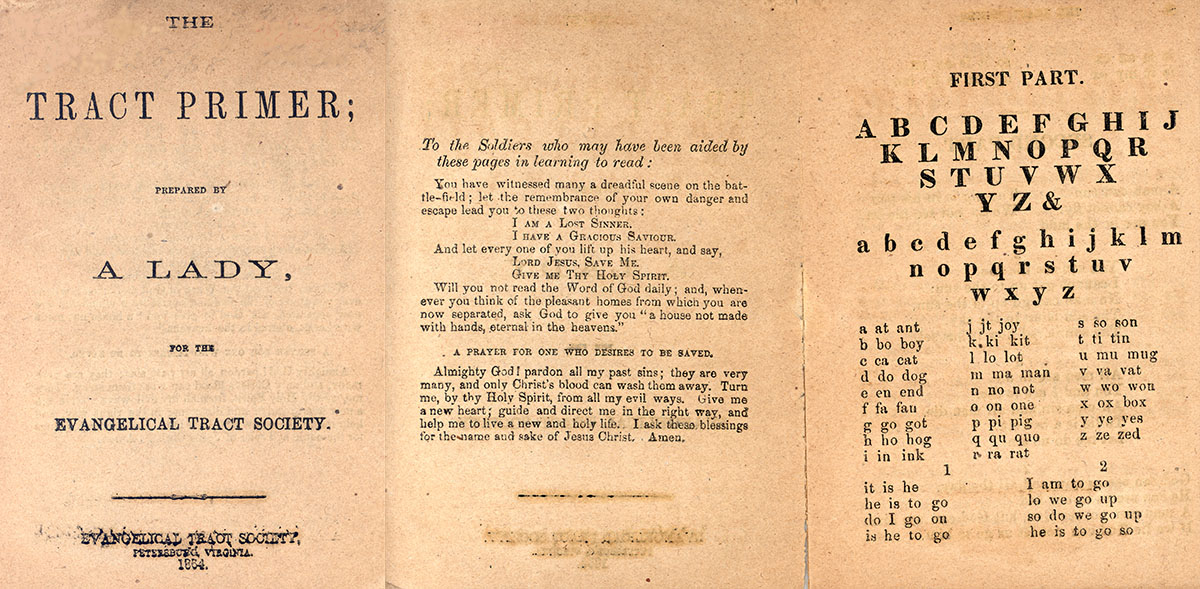
The Tract Primer; Prepared by a Lady for the Evangelical Tract Society. (Petersburg: Evangelical Tract Society, 1864).

U.S. Sanitary Commission, The Soldier's Friend. (Philadelphia: Perkinpine & Higgins, 1865).
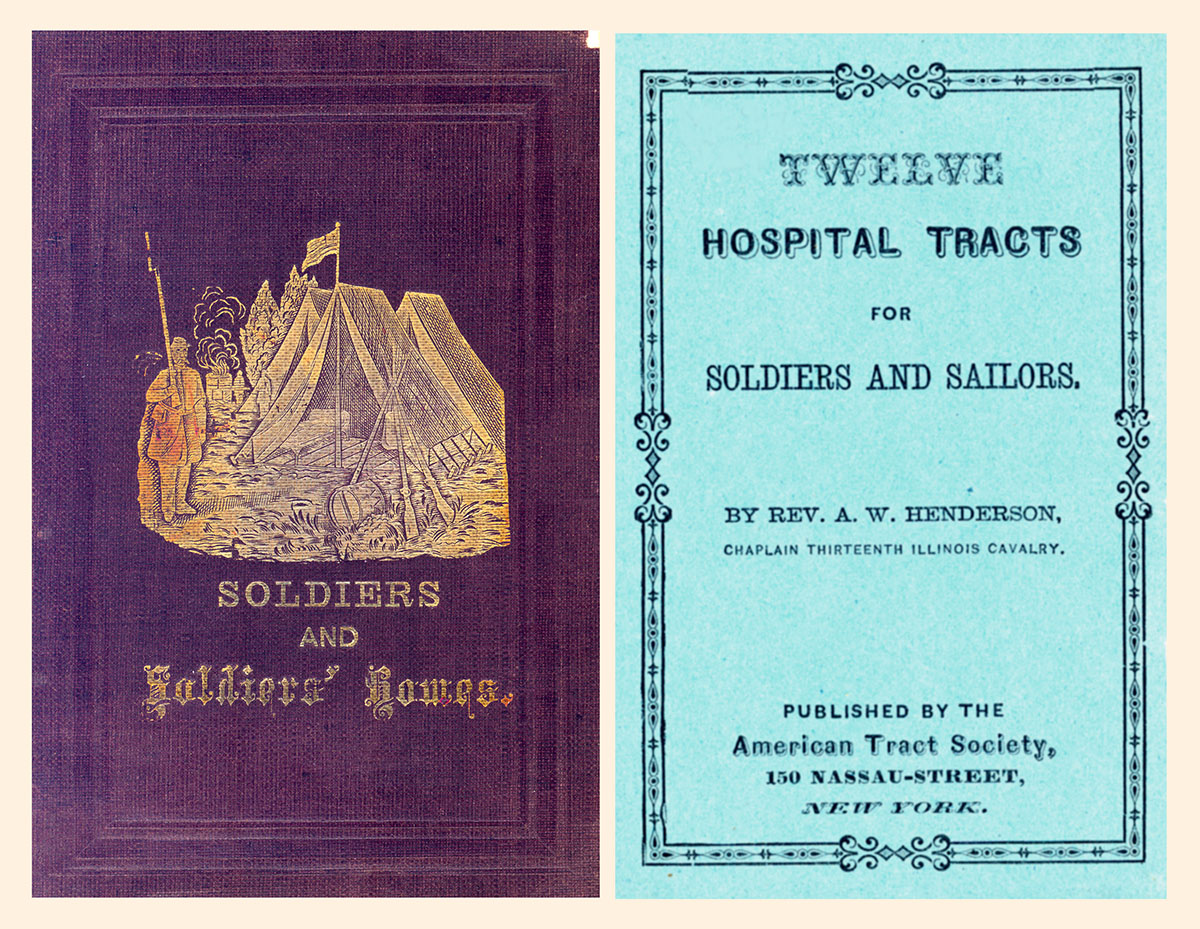
[left] Phoebe Harris Phelps, Soldiers and Soldiers’ Homes. (American Tract Society, 1864.) [right] Rev. A.W. Henderson, Twelve Hospital Tracts for Soldiers and Sailors. (American Tract Society, 1863.)

[left] The Soldier’s Pocket Book. (Philadelphia: Presbyterian Board of Publication, 1862.) [right] Rev. Beriah Bishop Hotchkin, The Soldier’s Scrapbook, Presented by the U.S. Christian Commission. (Philadelphia: Presbyterian Publication Committee, 1864.)
Outreach to freedmen
Northern Presbyterians at the national level formally organized Freedmen’s work during the war—in 1863 for the United Presbyterian Church of North America, and in 1864 for the Old School and New School branches of the Presbyterian Church in the U.S.A. Synods and presbyteries often led the effort, sending delegations south to set up and staff schools and provide other assistance.
After Union troops liberated the Sea Islands off South Carolina in 1862, Charlotte Forten (1837-1914) went to Fort Royal to teach the “contraband.” Charlotte was the first black teacher to journey south; she later married Presbyterian pastor Francis Grimké.

Presbyterian pastor and abolitionist Henry Highland Garnet (1815-1882) recruited freed slaves to fight for the Union and offered his support by collecting and distributing supplies and ministering to soldiers.

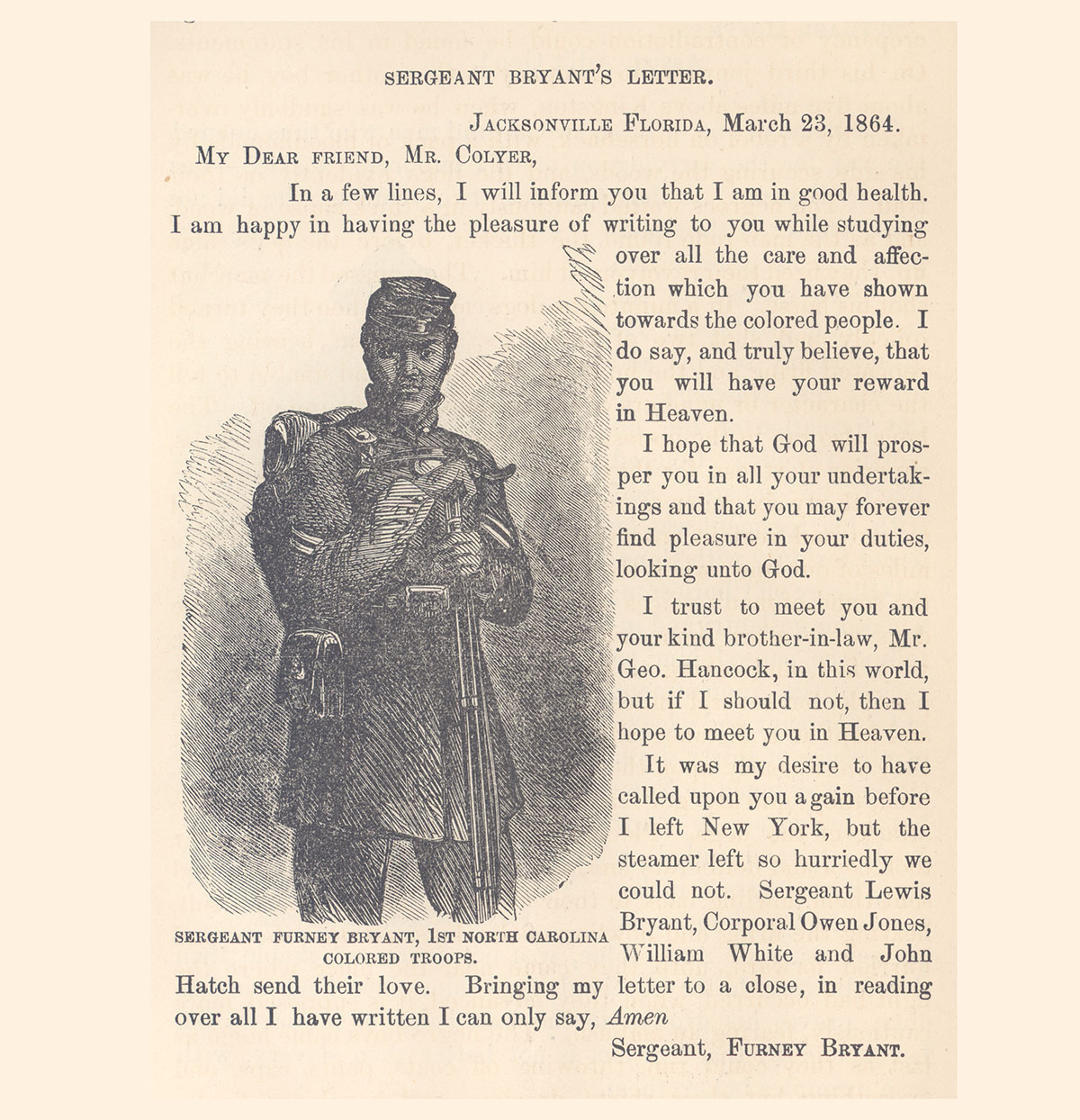
“Sergeant Furney Bryant, 1st North Carolina Colored Troops,” illustration by Vincent Colyer in his
Brief Report of the Services Rendered by the Freed People to the United States Army in North Carolina. (New York: Vincent Colyer, 1864), 14.
View full image.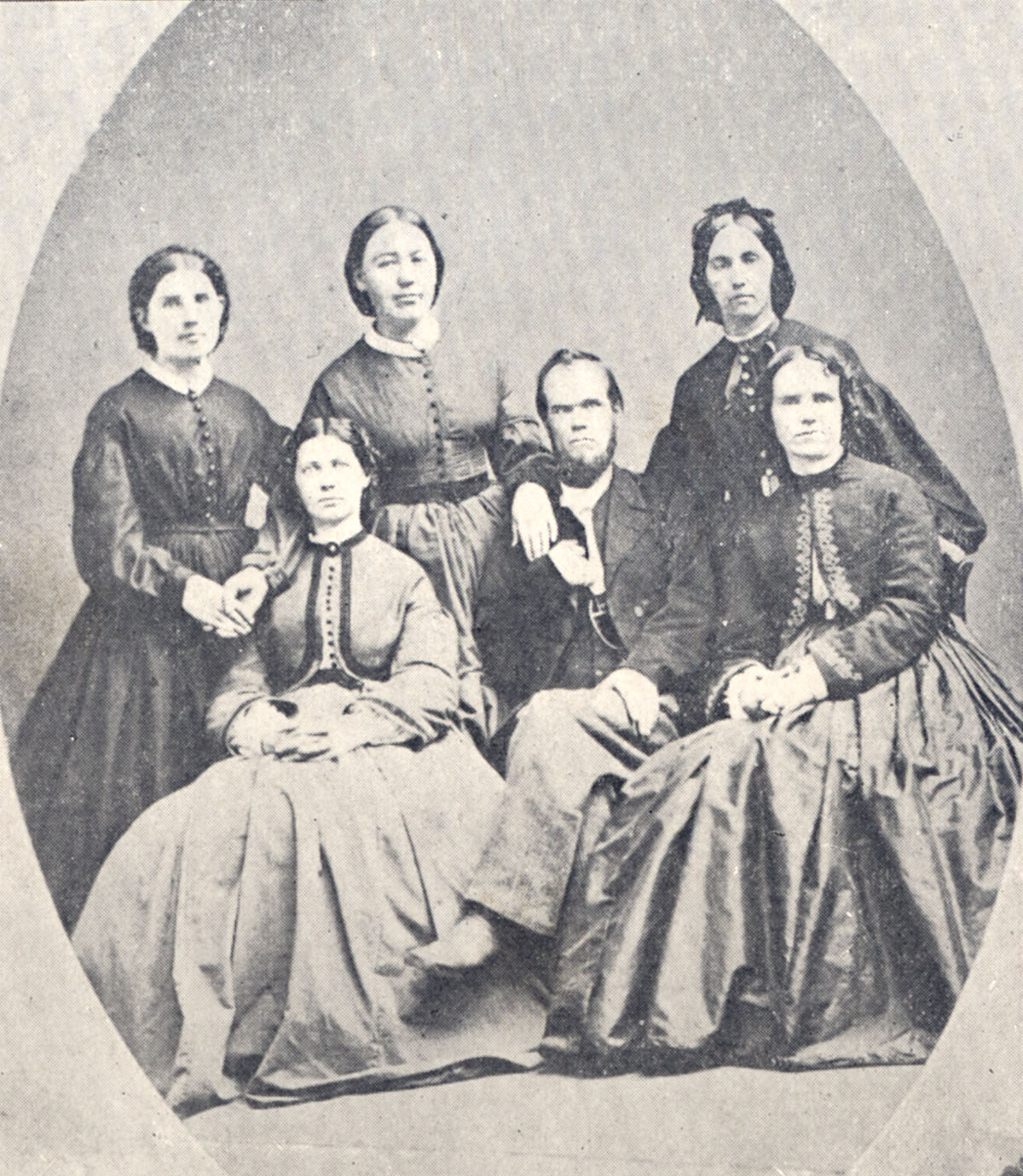
Group of teachers at the “McKee School” in Nashville, circa 1865. UPCNA pastor, Rev. Joseph G. McKee (1832-1868), founded the school for freed slaves in October 1863.
Historical Sketch of the Freedmen’s Missions of the United Presbyterian Church, 1862-1904. (Knoxville, Tenn.: Printing Department, Knoxville College, 1904), 24.
View full image.
Excerpt from the minutes of the Presbyterian Church in the U.S.A. (Old School), Western Committee for the Religious Instruction of Freedmen, 1864-1865.
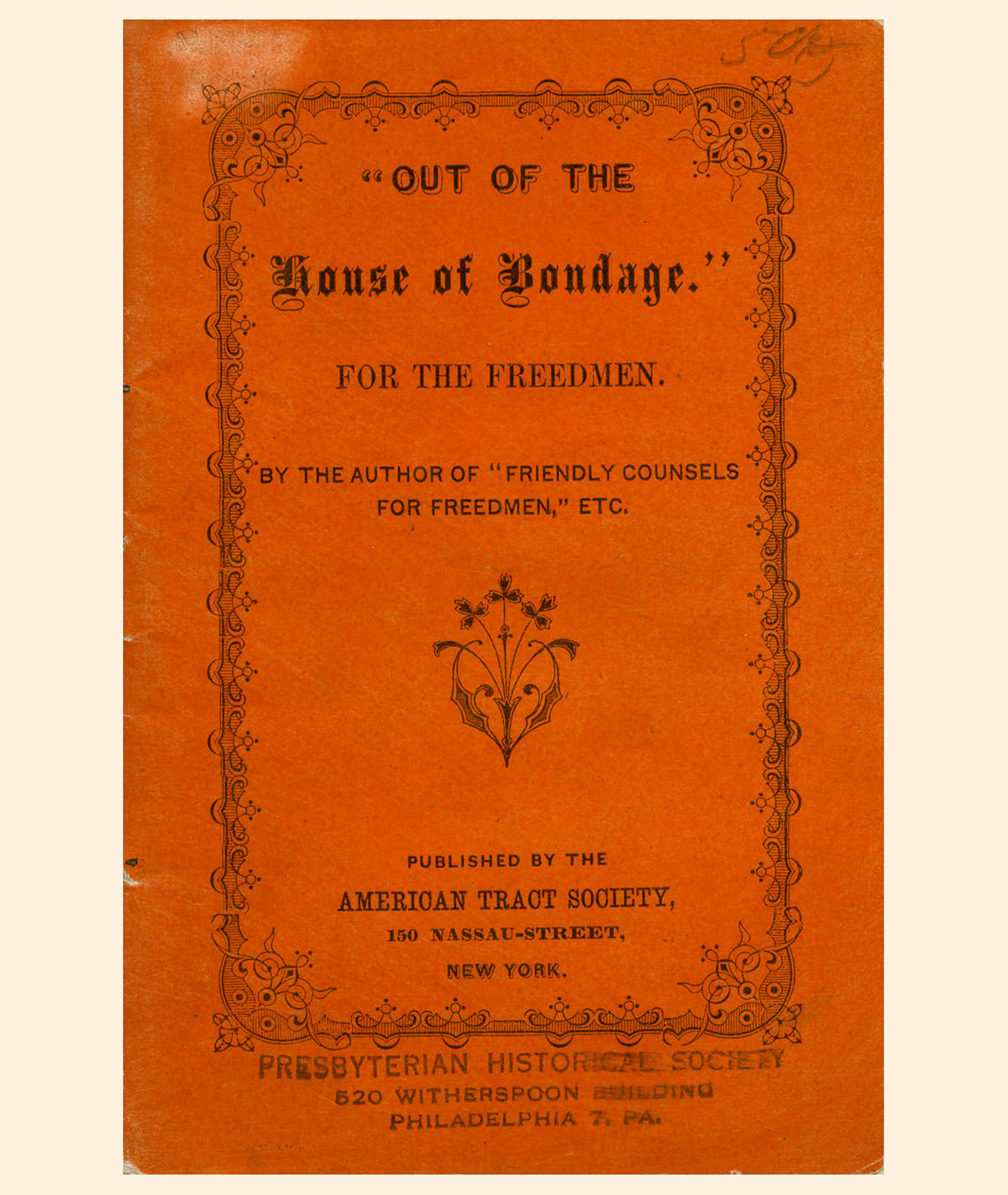
Jared Bell Waterbury, “Out of the House of Bondage.” For the Freedmen. (New York: American Tract Society, 1864).
































